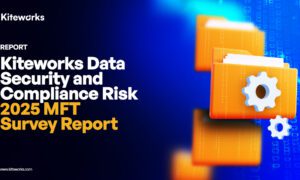The role of an Information Security Analyst is crucial in safeguarding sensitive data and ensuring the integrity of information systems. Aspiring to be an Information Security Analyst requires a blend of technical expertise, analytical skills, and a keen understanding of cybersecurity threats and solutions. This article delves into the essential skills needed to excel in this dynamic field.
Technical Proficiency
Understanding Operating Systems
A strong grasp of various operating systems, including Windows, Linux, and macOS, is fundamental. Information Security Analysts must know how to navigate these systems, understand their vulnerabilities, and implement security measures effectively.
Networking Knowledge
Networking skills are vital as they help analysts understand how data flows within an organization. Familiarity with TCP/IP, DNS, and other networking protocols is necessary to detect and mitigate network threats.
Proficiency in Programming
Knowledge of programming languages such as Python, Java, and C++ is highly beneficial. These skills enable analysts to develop security tools, scripts for automation, and analyze code for vulnerabilities.
Familiarity with Security Tools
Proficiency in using various security tools like firewalls, antivirus software, intrusion detection systems (IDS), and encryption tools is essential. These tools are the first line of defense against cyber threats.
Analytical Skills
Threat Analysis
Information Security Analysts must be adept at identifying and analyzing potential threats. This involves understanding the nature of the threat, the potential impact, and the necessary response measures.
Problem-Solving
Problem-solving skills are crucial in quickly identifying the source of a security breach and implementing effective countermeasures. This requires a methodical approach to troubleshoot and resolve security issues.
Attention to Detail
Attention to detail is imperative in this role. Analysts must scrutinize logs, reports, and security alerts to identify any anomalies that could indicate a security threat.
Knowledge of Cybersecurity Concepts
Understanding of Cybersecurity Frameworks
Familiarity with cybersecurity frameworks such as NIST, ISO/IEC 27001, and CIS Controls is important. These frameworks provide guidelines and best practices for managing and reducing cybersecurity risks.
Risk Management
Risk management skills are essential for assessing the potential risks to an organization’s information assets and implementing appropriate security measures. This includes conducting risk assessments, identifying vulnerabilities, and developing mitigation strategies.
Incident Response
Knowing how to respond to security incidents is critical. This involves creating and implementing incident response plans, conducting post-incident analysis, and improving defenses based on lessons learned.
Continuous Learning and Adaptability
Staying Updated with Trends
The cybersecurity landscape is constantly evolving. Information Security Analysts must stay updated with the latest trends, threats, and technologies in the field. This can be achieved through continuous education, attending conferences, and participating in online forums.
Adaptability
Adaptability is key in responding to new and emerging threats. Analysts must be flexible and willing to learn new tools and techniques as needed.
Communication Skills
Effective Reporting
Effective communication skills are essential for preparing and presenting security reports to stakeholders. This includes conveying complex technical information in a clear and concise manner.
Collaboration
Collaboration with other IT professionals, management, and external vendors is often necessary. Good interpersonal skills are required to work effectively in a team and ensure cohesive security strategies.
Ethical Hacking
Penetration Testing
Penetration testing, or ethical hacking, is a valuable skill for identifying and addressing vulnerabilities before malicious hackers can exploit them. This involves simulating cyber-attacks to test the effectiveness of security measures.
Understanding of Attack Vectors
A deep understanding of common attack vectors such as phishing, malware, and social engineering is essential. This knowledge helps in developing robust defenses and educating users about potential threats.
Regulatory and Compliance Knowledge
Understanding Regulations
Information Security Analysts must be aware of relevant regulations and compliance requirements. This includes laws such as GDPR, HIPAA, and CCPA, which govern data protection and privacy.
Implementing Compliance Measures
Implementing and maintaining compliance measures is crucial to avoid legal penalties and protect the organization’s reputation. Analysts must ensure that security policies and procedures align with regulatory requirements.
Project Management
Planning and Execution
Project management skills are beneficial for planning and executing security initiatives. This includes setting goals, managing resources, and ensuring that projects are completed on time and within budget.
Risk Assessment in Projects
Assessing and managing risks in IT projects is an important aspect of project management. This involves identifying potential security risks and implementing measures to mitigate them during the project lifecycle.
Soft Skills
Critical Thinking
Critical thinking skills enable analysts to evaluate information from various sources and make informed decisions. This is crucial for developing effective security strategies and responding to incidents.
Time Management
Time management skills are important for balancing multiple tasks and priorities. Information Security Analysts often have to manage ongoing monitoring, incident response, and long-term projects simultaneously.
Stress Management
The high-stakes nature of cybersecurity can be stressful. Effective stress management techniques help analysts maintain their performance and make sound decisions under pressure.
Industry Certifications
Importance of Certifications
Obtaining industry certifications demonstrates a commitment to the profession and validates the analyst’s skills and knowledge. Certifications such as CISSP, CEH, and CompTIA Security+ are highly regarded in the industry.
Continuous Certification
Maintaining and updating certifications through continuous professional development ensures that analysts stay current with the latest advancements in the field.
Conclusion
Becoming a successful Information Security Analyst requires a diverse skill set that combines technical proficiency, analytical capabilities, continuous learning, and effective communication. By developing these essential skills, aspiring analysts can play a pivotal role in protecting their organization’s information assets and navigating the ever-evolving landscape of cybersecurity. The path to becoming an Information Security Analyst is challenging yet rewarding, offering a vital and dynamic career in the digital age.



































